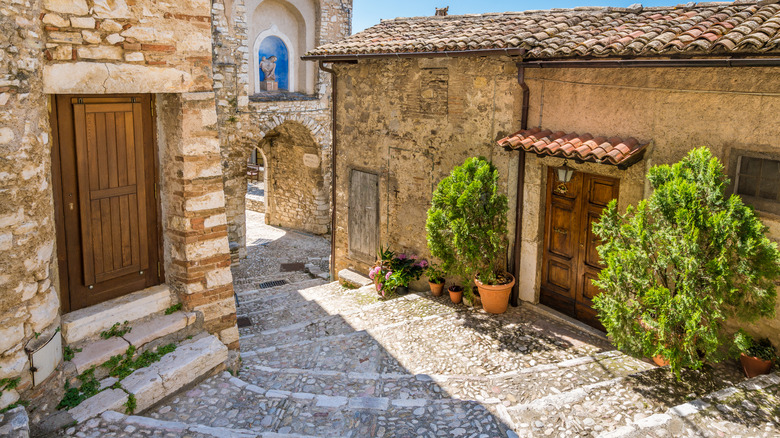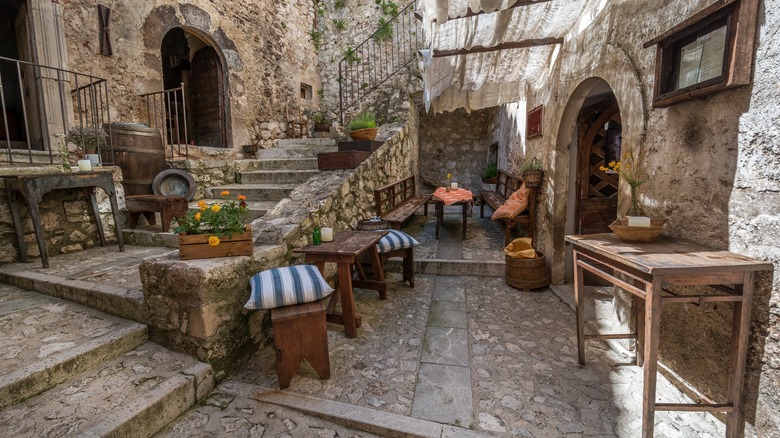The Up-And-Coming Lodging Option To Know About Before Booking A Place To Stay In Italy
These days, travelers have a dizzying array of accommodations to consider, from beautiful boutique hotels and self-catering apartments to affordable, scenic agriturismos and ecolodges. Get ready to be even dizzier — yet another lodging option has been gaining traction in recent years in Italy and a few other countries. These are called "alberghi diffusi," or diffuse hotels, in which a "hotel" consists of a central reception desk with individual rooms dispersed throughout a village or neighborhood, with all the rooms united under one brand and management. The rule is that the rooms of the diffuse hotel must be located in existing (not new) buildings, and these buildings must blend in with the area's traditional architectural style.
These diffuse hotels are a way for municipalities to restore and revive abandoned, crumbling buildings in older neighborhoods of cities or in small rural villages, which may be experiencing population decline. They also provide guests with a more genuine local experience. The mastermind behind the albergo diffuso (singular form of alberghi diffusi), Giancarlo dall'Ara, explained to Forbes that "This type of hotel allows visitors to experience the most authentic, if elusive, side of Italy: daily life in its small towns. It encourages an exchange between travelers who want to learn about a territory, and locals who open their doors to share their heritage and tradition."
Where diffuse hotels are located
There are currently more than 140 diffuse hotels located throughout Italy, some in quite exotic locations. In Matera, an underrated destination with a fascinating history, the property run by Sextantio features rooms nestled in the city's famous cave dwellings, while Alberobello (in nearby Puglia) has rooms located in the town's famous white cone-shaped houses, called trulli. Guests at Albergo Diffuso Mannois on the island of Sardinia stay in traditional stone houses on the cobblestone streets of Orosei and can lounge on a private sandy beach.
What all these different locations have in common is that visitor experiences are intricately woven into the physical and cultural fabric of the surroundings, setting the alberghi diffusi apart from other kinds of accommodations. Some travelers really love this, and they demonstrate this appreciation with their patronage. Mario Demartino and Simona Tavassi keep returning to Villa Asfodeli (an albergo diffuso in Sardinia), having already been there four times. Demartino told Smithsonian Magazine: "They welcome you. They look after you in a different way because they realize that you are foreigners — a more helpful, warmer way. It's very fun. It's beautiful." Stay tuned for more of these unique accommodations inside Italy and beyond as the model continues to take hold in the tourism industry.

